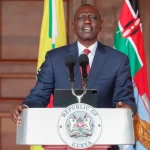Women’s rights activists are urging the government to recognize and support unpaid caregivers, emphasizing the predominantly female role in this crucial yet often overlooked sector.
Susan Acen, a Program Manager at Uganda Women Network (UWONET), highlighted that the bulk of unpaid care work falls on the shoulders of women. This encompasses tasks like dishwashing, cooking, and other domestic responsibilities.
Acen stressed that unpaid caregiving consumes significant amounts of time for those involved and should be acknowledged as legitimate work. She advocated for a reevaluation of societal norms to reduce and redistribute this burden, allowing caregivers the opportunity to pursue education or employment.

Furthermore, Acen emphasized the importance of integrating discussions on unpaid care into public discourse and governmental planning. This, she argued, would facilitate better policy formulation to address the needs of caregivers effectively.
These sentiments were echoed by Phoebe Ayoo, the Gulu District Speaker, who emphasized the indispensable role played by women and girls in unpaid caregiving. Ayoo emphasized that without their dedication households would face significant challenges.


Caroline Oyoo, representing Rubanga Mamiyo Women Group in Unyama A, Gulu City, shared insights into practical approaches to addressing gender-based violence (GBV).
Oyoo highlighted the group’s efforts to incorporate men into caregiving responsibilities, resulting in a reduction in GBV within the community. Additionally, they employ creative methods such as drama to raise awareness about GBV and other social issues.
Research conducted by UWONET underscores the staggering commitment of women and girls to unpaid care, with an average of seven hours dedicated to these responsibilities daily.








